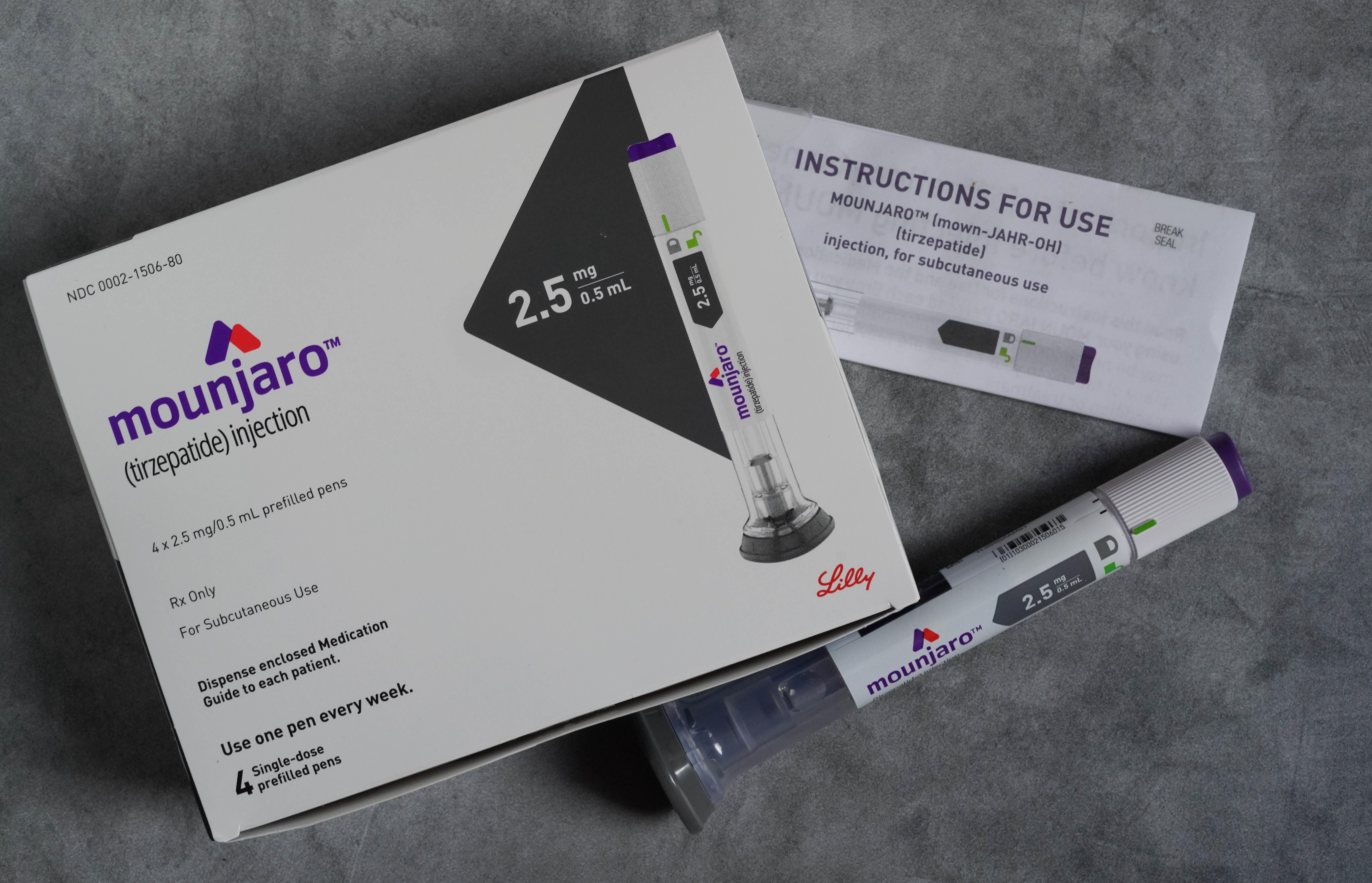Mounjaro on the NHS: What you need to know about ‘King Kong of weight-loss drugs’
The drug, also known as tirzepatide, will be rolled out on the NHS

The NHS spending watchdog has recommended Mounjaro – also known as tirzepatide and made by Eli Lilly – for those with a body mass index (BMI) of more than 35 and at least one weight-related illness.
The drug will be rolled out on the NHS gradually over a 12-year period.
The National Institute for Health and Care Excellence (NICE) confirmed on Thursday that people with the highest needs will be prioritised first, so fewer than 10% of patients in England who are eligible will initially be able to access it on the NHS.
Professor Jonathan Benger, chief medical officer at Nice, said: “The world will look very different in three years which is why we’ve taken the unprecedented decision to review the way this medicine is delivered to patients then.
“Tirzepatide and other drugs like it, such as semaglutide, will help people living with obesity to lose weight, and as a result will reduce their risk of developing heart disease or having a stroke.
“But tirzepatide is not for everybody, and only those with the highest clinical need will be treated initially.
“This means many people will have to wait. We have had to make this difficult decision in order to protect other vital NHS services and also to test ways of delivering this new generation of weight loss medications.”
What is Mounjaro?

“Mounjaro is the brand name for tirzepatide, a weekly injectable weight-loss medication which has recently been approved for use in the UK and is now available to order with a prescription online,” says Dr Mitra Dutt, GP from Lloyds Pharmacy Online Doctor.“As with many of the weight-loss medications that have become available in recent years, Mounjaro was originally developed and licensed as a medication for people with Type 2 diabetes.
“However, the Medicines and Healthcare products Regulatory Agency (MHRA) authorised the drug for weight loss and weight management in November 2023 in a bid to tackle obesity.”
But how does it work?
“The active ingredient in Mounjaro is tirzepatide. This works by mimicking the effect of the hormones GIP and GLP-1 which are secreted from the intestine after eating and which signal satiety to the brain, making you feel full,” explains Dr Kathryn Basford at Asda Online Doctor. “It also stimulates the release of insulin, a blood sugar-lowering hormone, and slows the passage of food through the gut.
“Over time, this effect will aid weight loss as people eat less due to feeling satisfied for longer.”
It is usually self-administered.
“The best place to inject Mounjaro weight-loss pens is in your abdomen or thighs, or back of the upper arms if someone else is injecting for you,” says Basford. “Injections should be at least one finger width from your previous injection site, and if injecting in the abdomen at least 5cm away from your naval.”
However, Dutt is keen to stress that it isn’t a “miracle drug”.
“While being an effective weight-loss aid, it is not a miracle drug,” notes Dutt. “It is important that this medication should also be introduced in conjunction with other lifestyle changes, such as a reduced-calorie diet and exercise.”
Who is eligible for Mounjaro?
“On the NHS, it will be offered to people with a body mass index (BMI) of over 35 and at least one obesity-related health problem – potentially 3.4 million people,” says Basford. However, the roll-out will be gradual.
NICE has recommended prioritising patients receiving care from specialist weight-management services who will be able to access the drug within 90 days of the guidance being published on December 23.
NHS England will develop a plan outlining other groups of patients that will be offered Mounjaro in the next three years, according to NICE.

“This medication is not for people with a healthy BMI who are looking to slim down,” clarifies Dutt. “Mounjaro is only for people who are medically obese and need medical help to reach a healthier weight.”
Are there any known side effects?
“When starting Mounjaro, you’ll be prescribed a starting dose to begin with to allow your body to adjust to the medication and get used to side effects,” explains Dutt. “The most common side-effects of Mounjaro are similar to other weight-loss injectables: nausea, diarrhoea, vomiting, constipation and indigestion.”
Bookmark popover
Removed from bookmarks